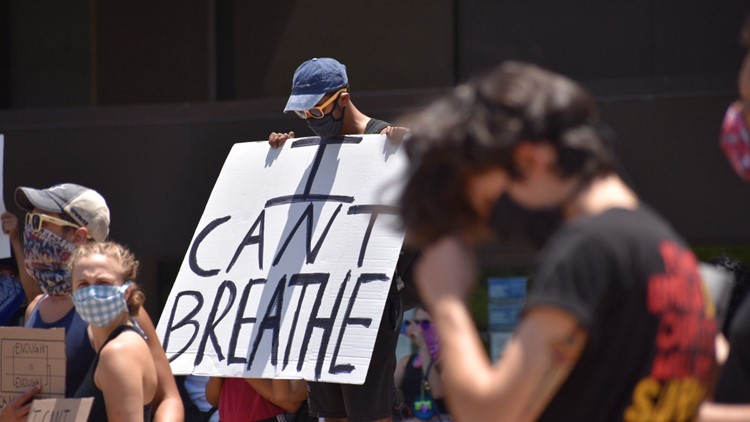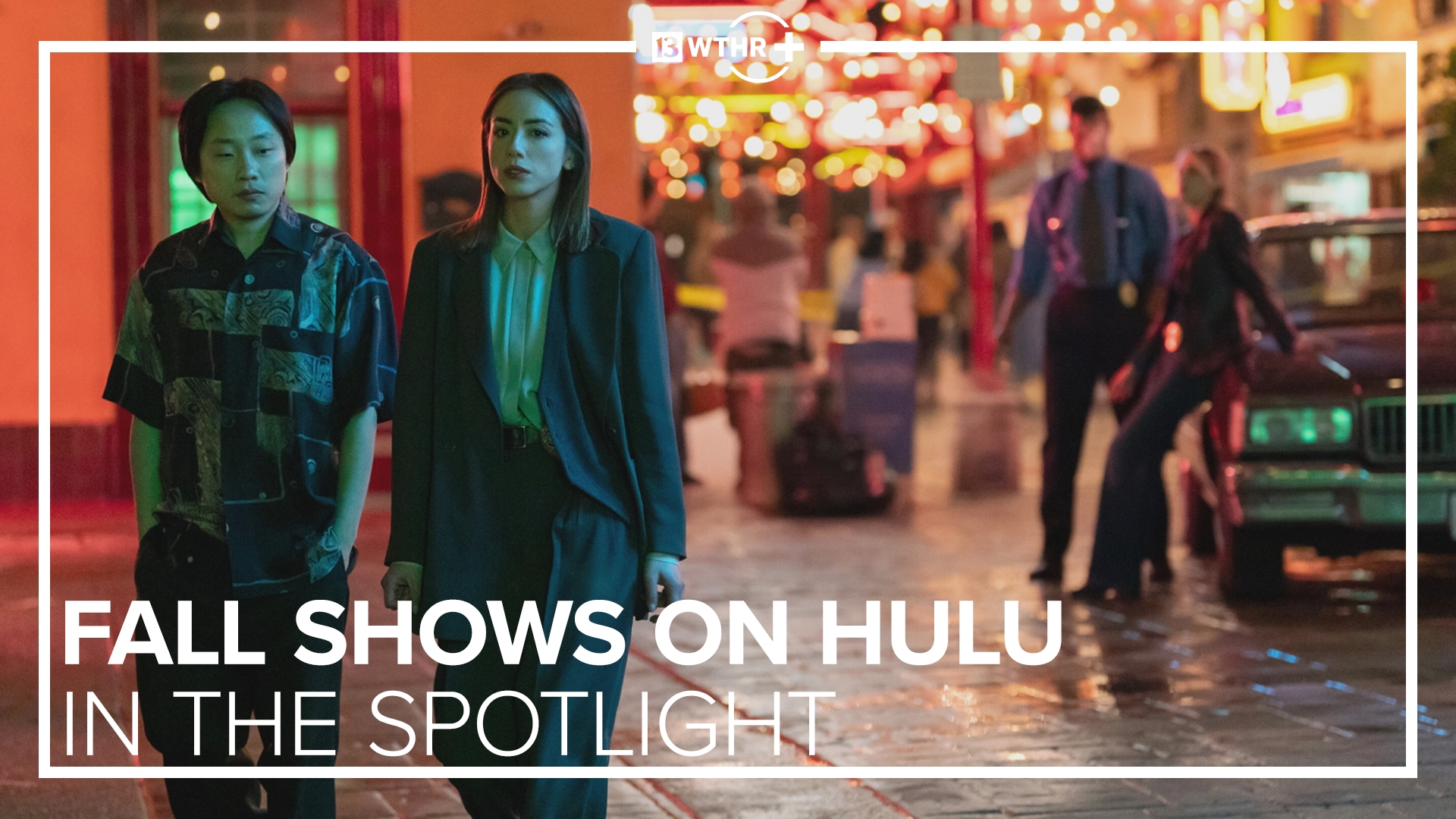An educator. An author. A politician. A reporter.
In this week’s episode of Y’all-itics, 'My Skin is not a Weapon,' Jason Whitely and Jason Wheeler were joined by four black panelists who shared their thoughts on what’s happening in their communities following the death of George Floyd while in police custody.
From protest to policy, this powerful conversation examines past, present and future as it relates to the black experience and what the country needs to do to move past one of the most challenging times in American history.
To listen to the full episode, subscribe to Y'all-itics where you get your podcasts:
From protest to policy to personal experience, here are some excerpts of this week's conversation.
Why is this protest different?
Demond Fernandez, WFAA reporter: “Watching that video over and over and hearing George Floyd’s screams for help and repeatedly saying I can’t breathe and watching the people in the background urge the officers to stop and do something, it was frustrating. You heard a certain sense of helplessness. And I think that’s why it’s bubbled up this way. Because it’s not only another incident where you get to see and hear and feel a sense of emotion about what so many people across the country have been talking about for a long time. The video that goes on for minutes is so graphic. And if anyone doesn’t accept the fact and realize that this real and in-your-face, you’ve got to be tone deaf.”
Akela Renae, author: “I watched it yesterday for the first time, the whole thing. And it was shocking and sad. I think we’re at a point now where things are at a fever pitch, where we’re tired of seeing these things. At some point you become desensitized to it. And that’s the unfortunate thing. It’s like here’s another case. But seeing it play out where people were urging the cops to get up, he cannot breathe, you can see that. It struck a chord with everyone I think.”
Why did it take you so long to watch the video?
Carl Richard, Jr., politician: “We’ve seen this before. We’ve seen Tamir Rice be gunned down moments after police arrived on the scene. We’ve seen Walter Scott running away from police and shot in the back, some 50-year-old man who was no track star gunned down in front of our eyes. We’ve seen this before. And for many of us, it’s happened so often in our communities that we’re not far removed from anyone who’s had a situation similar to this. It may not have ended in their death. But it did end in a violent action by a police officer. A chokehold. Or a prone position that the officer put the person in. So I wasn’t in a rush to see it. But after everyone, their response was so overwhelming. That’s what in my mind said this is different. Stomach it. And sit through it and watch it.”
The protests and the violence
David James, assistant principal: “It’s a very conflicting emotion that I have. On one hand, I do get very invested in these. Working in the school system and seeing police interactions with young people and being afraid that in that school setting I can’t control what an officer does and not being able to control what a student does ultimately is something that gives me conflicted emotions. And so to see these things repeating themselves over and over again. I’m very frustrated. Sometimes I feel like these rioters are my spirit animals. I feel like they’re carrying out the things I wish I could do, but I just can’t in my role. And by the same token, I don’t agree with the violence. But what I do know, is it’s very frustrating to see, again, non-African-American people telling us what we can and cannot do to protest. Telling us we cannot kneel during the national anthem. But then telling us that we can’t take to the streets and be overcome with emotion.”
Personal experiences
Carl Sherman, Jr., politician: “Growing up, we were taught if you get pulled over you turn on all your dome lights. You turn your vehicle off. You put your hands on the steering wheel. But there’s still that anxiety that me, as a grown man, has any time you see those lights. And further, anytime I pass someone, a young male specifically, who is in high school, who’s driving on any street within our city and they’ve been pulled over and then you see that second squad car, your heart just drops.”
David James, assistant principal: “His story (Carl Sherman Jr.’s) is the reason when I was in high school that I couldn’t go out past a certain time. It wasn’t because my parents thought I was going to be into drugs or alcohol or anything. It was just, we know the system and we know the way things play out. His story is the reason my mom would constantly say don’t speed. Yes sir, no sir. She would always teach me these different lessons. And as frustrating as they were, you can’t help but understand it.
“My boys are 4 and 2 years old. I love them to death. I love their long hair. But I contemplate, what’s the right age for them to consider having a haircut that looks more like an American standard. Which is just the most assimilated type of a behavior that I could ever have for my kids. And it’s just frustrating, because I don’t feel like I should have to make those decisions for my children. I don’t feel like I should have to prep them on what their interactions should look like. Or what they should say to an individual at any point because they won’t be cute forever. They’ll start to get the stubble. And they’ll start to fill out. Their dad is 6’3” and 240 pounds, so they’re not going to be small kids. But at some point, when will they be a threat rather than just a cute kid? And that’s a very maddening thing for me to have to think about.”
Akela Renae, author: “I got pulled over in DeSoto last summer for my headlight being out and I was terrified. Because one, I have a license to carry and all I can think about anytime anybody is in my car and I’m traveling a long distance and I have my license to carry and all I think about is Philando Castile, because he had a license to carry and he lost his life. Thankfully at that time, the officer put me at ease. And he was like, hey I’m just stopping you because you had a headlight out. And I told him I had a license to carry. And he was like, that’s okay. He diffused the situation. Which was great for me.”
What should be done right now?
Demond Fernandez, reporter: “There seems to be a great disconnect between city leadership, police and the communities they serve… Based on my observations and community perspective, I think it would definitely benefit the city and the police department if they have some genuine conversations about how they’re policing, especially those communities that are most vulnerable, where housing is a concern, poverty is a concern, where policing has been a concern. And come up with some strategies based on those perspectives that could be a little bit more fruitful.
“I also think that city leadership needs to acknowledge the disparities in our community. When you’re looking at housing, when you’re looking at the food deserts, when you’re looking at health disparities, look at how you’re dispersing those resources across the community. There’s one thing when you’re talking about equality. There’s another thing when you’re talking about equity.”
You can watch their full conversation here:
More Y'all-itics:
- 'Our destiny is...to explore the solar system': American astronauts set to launch in American spacecraft from American soil
- How to protest your property tax appraisals
- COVID-19’s effect on the office: The cubicle's comeback, stand-up meetings, and fewer conference rooms
- Inside a Texas hospital: Local nurse describes COVID-19 unit and treating critical patients



